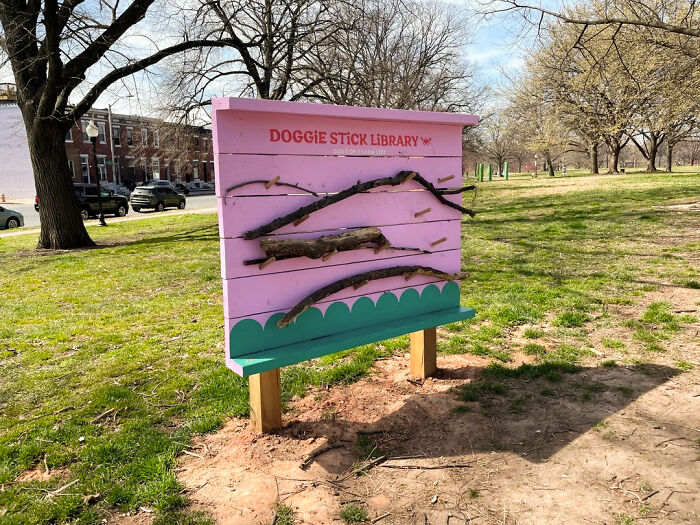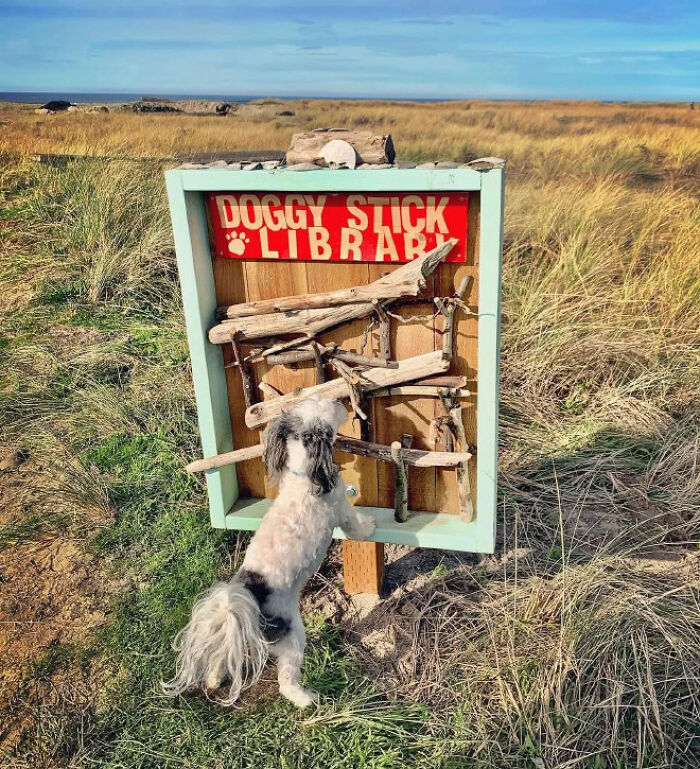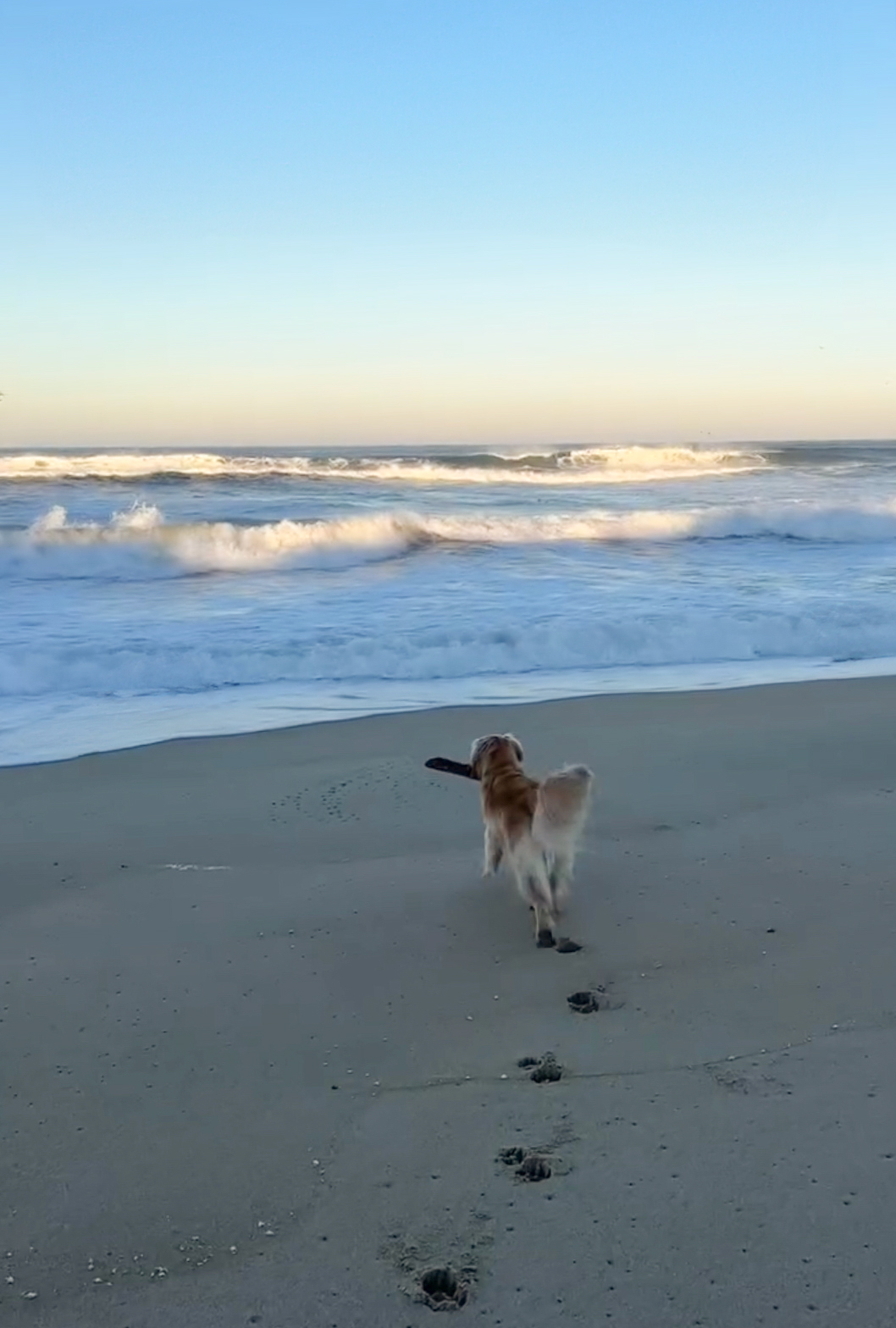There’s probably nothing else out there that almost every single dog loves to play with as much as a good old-fashioned stick. Funny enough, it’s quite easy to find one almost anywhere—except for those moments when people actually need them.
Therefore, several dog communities have begun to spread the truly brilliant idea of a stick library—so all dogs can use and return sticks anytime they need to.
More info: Dogs Of Charm City
Since so many dogs love to play with sticks, more and more people have begun to build stick libraries to make their furry friends happy



Patterson Park in Baltimore was one of many places that started offering local pups something to bark about as they can collect, share, and play with these oldest known toys.
Sticks and branches of various sizes rest on pegs attached to a beautifully painted wooden board. Every dog can take one or leave one, as long as the sticks are in good condition for safe play.
“Whether a human (even without a dog) sees a great stick they want to add or you need to ask your dog to give up his or her prized stick until the next park visit, new sticks of all sizes are welcomed,” explained Alexa Cambi, Dogs of Charm City’s General Manager.
“The library’s sticks are to be up-kept and up-cycled by Baltimore park goers and all that we kindly ask is that people refrain from adding any dangerous, sharp or frayed sticks,” the woman added.
Although dogs and their owners do not have to necessarily return the same stick to the library, they are encouraged to keep it stocked with only safe, dog-worthy sticks.
So far, it seems that dogs truly adore this unique library idea because it not only gives them plenty of joy but also helps them meet any new furry friends that may be around.
These unusually thoughtful libraries offer a wide selection of sticks—even for the pickiest dogs


Seaside, a small resort city in northwestern Oregon, also kept up with this new adorable trend. Dogs here can always pick their favorite stick on the way to the beach.
“Seriously gonna ask my landlord if I can put one up in the yard for all the very good ones in the neighborhood. This is so kind and beautiful,” one of the commenters wrote.
“This is probably the cutest thing I’ve ever seen,” another one added.
“I wish to be a dog stick librarian,” read yet another comment.
Many dogs, no matter their breed, seem to truly enjoy picking their favorite toy, as the internet is full of photos and videos showcasing incredibly happy furry friends.

Image credits: @bakerbarnes
Searching for the roots of the stick library leads us to Andrew Taylor from New Zealand. He was probably one of the first to come up with the genius idea back in 2019.
The man was inspired by his own dog Bella’s love for sticks and the lack of ‘good’ ones at the park.
“While trimming the trees, my dad found himself with a lot of dead branches, and knowing from experience how hard it can be to find a good stick, and that the new dog park was opening soon, he had the idea that he would save them and put them in some kind of box,” Andrew’s daughter, Tayla Reece, explained.
“When the park opened … Mum and Dad took Bella and sure enough there were no good sticks. Dad is the type of guy that is always thinking of things to make, so the next day he found a suitable crate and made the sign for the top. He decided to call it the stick library because it implied that you return the stick once you’re finished with it,” she added.
The woman noted that many dog owners appreciate the idea of such a library since they have all experienced the ‘good stick search’—which wasn’t always fruitful.



Since the idea of the stick library has successfully spread all over the world, there have been lots of negative comments about it as well since many people find it dangerous for their pets. This is mainly because when the dog begins chewing on the stick, its splinters can create some really painful injuries.
And yet, I believe many of you will agree that, while being attentive to safety, it’s nice to have a spot where dogs and their owners can find sticks to play with—without facing the issue of finding one.
Netizens from all over the world adore the brilliant idea of a stick library for dogs



















